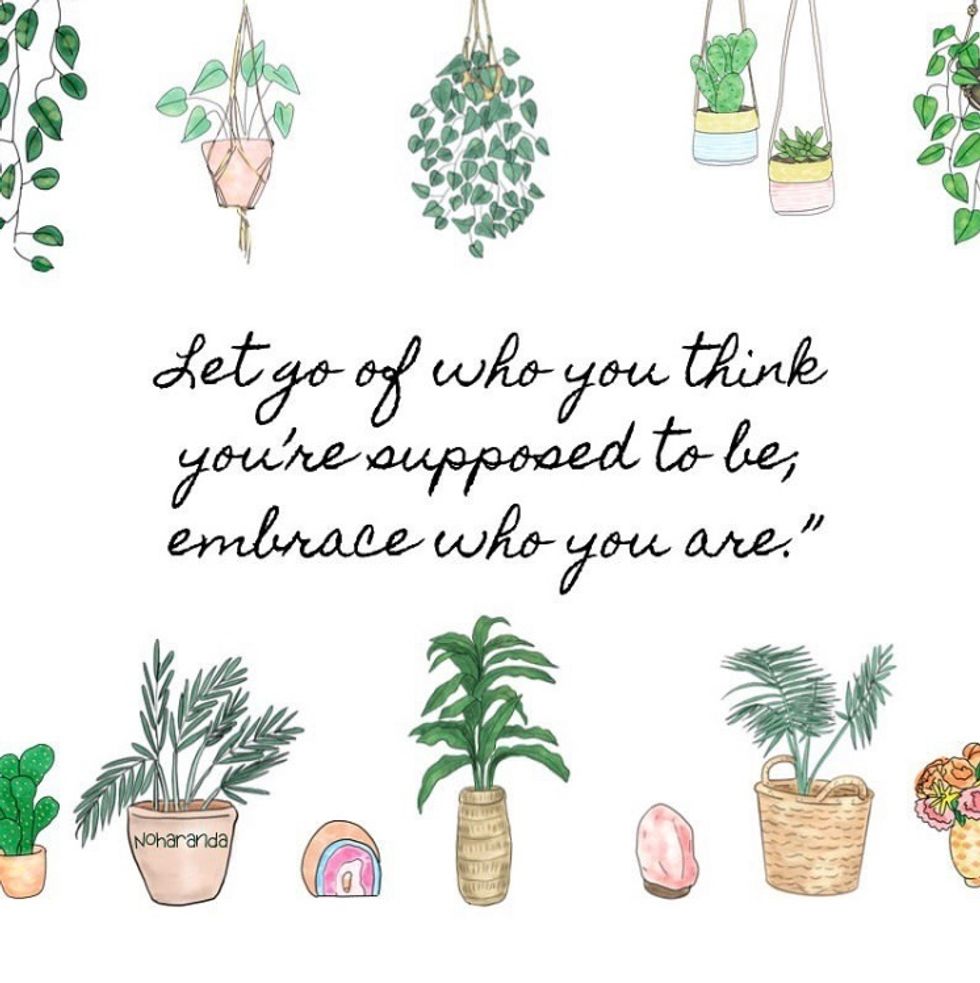Trigger Warning: This article includes an in depth discussion of mental illness, so please keep that in mind if you are sensitive to this topic.
Mental health is something that is constantly dismissed, even though almost half of adults (46.4 percent) in the United States will experience a mental illness during their lifetime.
Mental health is considered a taboo topic because there is a lack of education in our country. I believe the solution for this is to listen to one another's experiences so that we can raise awareness about mental illnesses. I personally suffer from and was diagnosed with GAD (generalized anxiety disorder), depression, and suicidal ideology. But, in addition to speaking about my problems, I wanted to give my audience a platform to speak about their own experiences.
I asked my followers on Instagram if anyone would be interested in being asked a few questions about their experience with mental health/illness. Three of my friends were kind enough to share their experiences with me. Like me, they want to break the stigmas surrounding mental health, and use their stories to do so.
I asked the following three questions:
(1.) How has mental health affected your life?
(2.) What is something you wish people could understand about mental health?
(3.) Do you think there is an unnecessary stigma around mental illness? Why?
Mijka Smith, 20, she/her

Mijka Smith
- Mental illness has affected my life in many ways. My mother suffers from undiagnosed mental health issues that have caused me to have my own. Since I was young I've had issues with OCD symptoms and anxiety. Coming into my teenage years, around age 13, I turned these feelings towards food and that eventually became bulimia nervosa. Feelings of anxiety and depression have been a part of my entire young adult life and to this day I still struggle with my relationship with food. It makes everything from going out to dinner to having a snack difficult.
- There is no one answer when it comes to mental health and what it looks like. I have had so many people tell me they're shocked that I deal with these issues because I have my life so "together." Just because I don't skip classes or cry all the time or eat in front of you does not mean I'm not dealing with these things. Sometimes the people you least expect are the people who need the most help. Also, ask how you can help, don't assume you know what is best for someone.
- Yes, absolutely. I think because mental illness is harder to see and define it makes people uncomfortable. It is harder to show "evidence" of mental illnesses on the outside that shows an immediate need for help and too many people suffer for it.
Anonymous,19

@noharanda on instagram.com
- My mental illnesses have become a huge component of my identity. In eleventh grade of high school, I took AP psych and learned about mental illnesses. Before that, I was not educated about it. It slowly allowed me to comprehend my own issues I had in the past and the reason why I have been acting and thinking irrationally.
- I wish people could understand that many people do not have the resources to get help. Additionally, many people are not educated about mental health because schools do not talk much about it. I always wish that I could be known earlier about my own mental illnesses. Education, awareness, and empathy are necessary.
- Stigma around mental illnesses can be quite complicated, especially in America. We live in a diverse country, rich in different cultures. Many cultures outside of America carry stigmas regarding mental health. That is a partial reason why many people that are second generation suffer with mental illnesses in silence. Having parents that have a rich background of a culture completely different than what the second generation is living in makes it difficult for them to get the support from people that matter most to them -- their parents. Thus many people suffer in silence or in secret. Stigma is unnecessary, but it is important to understand different cultures and how we can help people without disregarding a huge part of their identity. Educating people of all ages and cultures is vital.
If you or someone you know suffers from a mental illness, there are so many different ways to get help. Everyone has a different mental health journey, so solutions should be catered to that person individually. Your life and your emotions matter. Suffering alone is extremely hard, so below I have included some information that I think may be helpful to some people.
- Emergency Medical Services – Dial 911
- National Suicide Prevention Lifeline – Call (800) 273-8255
- National Alliance on Mental Illness – Call (800) 950-6264
- SAMHSA National Helpline – Call (800) 662-4357
- SAMHSA Disaster Distress Helpline – Call (800) 985-5990
- United Way 211 – Dial 211
- National Institute of Mental Health – Call (866) 615-6464
- Office on Women's Health – Call (800) 994-9662



















